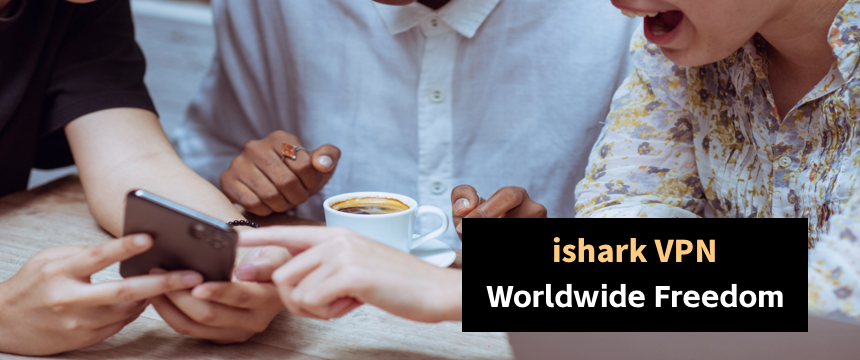Practical Methods for Safeguarding Mobile Property Using VPN
ishark blog article
In today's digital era, smartphones have become an integral part of our lives, and concurrently, ensuring the security of our mobile devices has taken on heightened significance.
With the ubiquity of smartphones, we not only use them for calls and messaging but also for banking transactions, social media interactions, and storing sensitive information.
Consequently, ensuring the safety of mobile property is crucial for both personal privacy and financial well-being.
In this article, we will delve into practical methods for using a Virtual Private Network (VPN) to protect the security of mobile assets.

Risks to Mobile Device Security
When we connect to public Wi-Fi networks, our smartphones may face various security risks.
Malicious actors can exploit unsecured network connections to pilfer our sensitive information, such as passwords, bank account details, and personal photos.
Moreover, malware and cyberattacks can potentially lead to data breaches and property loss.
VPN Encryption for Communication
A VPN is one of the effective tools for safeguarding mobile property security. It establishes an encrypted communication tunnel that connects your mobile device to a remote server.
This means that even when using public Wi-Fi networks, your data is encrypted, making it challenging for hackers to intercept.
Encryption also prevents your Internet Service Provider (ISP) from tracking your online activities, enhancing privacy protection.
Mitigating Malicious Connections
Certain malicious network connections might attempt to breach your smartphone and steal your information.
Using a VPN effectively thwarts these malevolent connections, as the VPN routes your data traffic through an encrypted tunnel, rendering hackers unable to access your information.
Additionally, a VPN can block malicious websites and advertisements, providing a safer browsing experience.
Utilizing Two-Factor Authentication
In addition to employing a VPN, enabling two-factor authentication (2FA) is a critical step in securing mobile property.
2FA requires you to provide two distinct forms of authentication when logging in, such as a password and a dynamic verification code.
This extra layer of verification ensures that even if hackers acquire your password, accessing your account becomes significantly more difficult.
Enabling VPN Protection at All Times
To ensure the security of mobile property, you can keep the VPN connection enabled at all times, regardless of the network environment you're in.
Even when you trust the current Wi-Fi network, using a VPN still offers encrypted protection for your data, ensuring your personal and financial information remains secure.

Conclusion
Safeguarding the security of mobile property is a responsibility we all share, and using a VPN is one of the potent tools to achieve this goal.
Through encrypted communication, thwarting malicious connections, employing two-factor authentication, and maintaining an always-on VPN connection, you can significantly enhance the security of your mobile property, shielding your personal privacy and financial information from threats.









